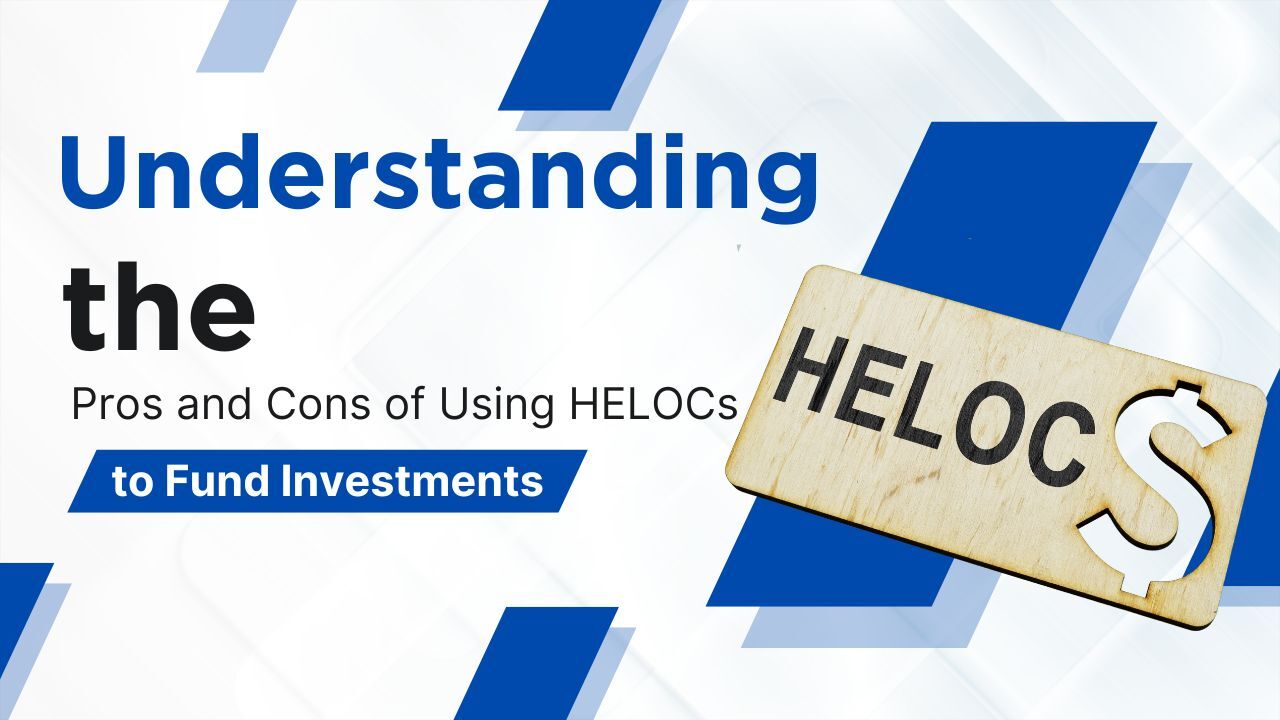 A Home Equity Line of Credit, or HELOC, can be a powerful financial tool. It allows homeowners to borrow against the equity in their property, often at a lower interest rate than other types of credit. Some borrowers use HELOCs to fund investments such as real estate, business ventures, or the stock market. While this strategy can create opportunities, it also carries significant risks that must be carefully weighed.
A Home Equity Line of Credit, or HELOC, can be a powerful financial tool. It allows homeowners to borrow against the equity in their property, often at a lower interest rate than other types of credit. Some borrowers use HELOCs to fund investments such as real estate, business ventures, or the stock market. While this strategy can create opportunities, it also carries significant risks that must be carefully weighed.
How a HELOC Works
A HELOC functions like a revolving line of credit based on the equity in your home. You can borrow, repay, and borrow again up to your credit limit during the draw period. This flexibility can make HELOCs appealing for strategic investments, as funds can be accessed when opportunities arise.
The Potential Advantages
The biggest benefit of using a HELOC for investing is access to affordable capital.
- Lower interest rates: HELOC rates are often lower than personal loans or credit cards, making borrowing more cost-effective.
- Flexibility: You can draw only what you need when you need it.
- Potential for returns: If your investments perform well, your profits could exceed the cost of borrowing, giving you a financial edge.
- Tax benefits: In some cases, the interest paid on a HELOC may be tax deductible if the funds are used for qualified purposes. Always consult a tax professional to confirm your situation.
The Serious Risks
Despite the potential upside, using a HELOC for investments involves significant risk.
- Market uncertainty: If your investments lose value, you still owe the money you borrowed, plus interest.
- Variable rates: Most HELOCs have adjustable interest rates that can rise over time, increasing your monthly payments.
- Secured debt: Because your home serves as collateral, missed payments or default could put your property at risk.
- Reduced home equity: Using your homeís equity to invest means you have less available for emergencies or future needs.
When It Might Make Sense
A HELOC can make sense for disciplined investors with strong financial stability, a clear plan, and a high tolerance for risk. It is best used for strategic, well-researched investments with the potential for solid, predictable returns, such as certain real estate projects or business expansions. It should never be used for speculative or short-term trading.
Using a HELOC to fund investments can be both an opportunity and a gamble. While it offers access to low-cost capital, it also ties your home to the performance of your investments. The key is careful planning, realistic expectations, and professional guidance. Before using home equity to invest, be sure the potential rewards outweigh the risks.

